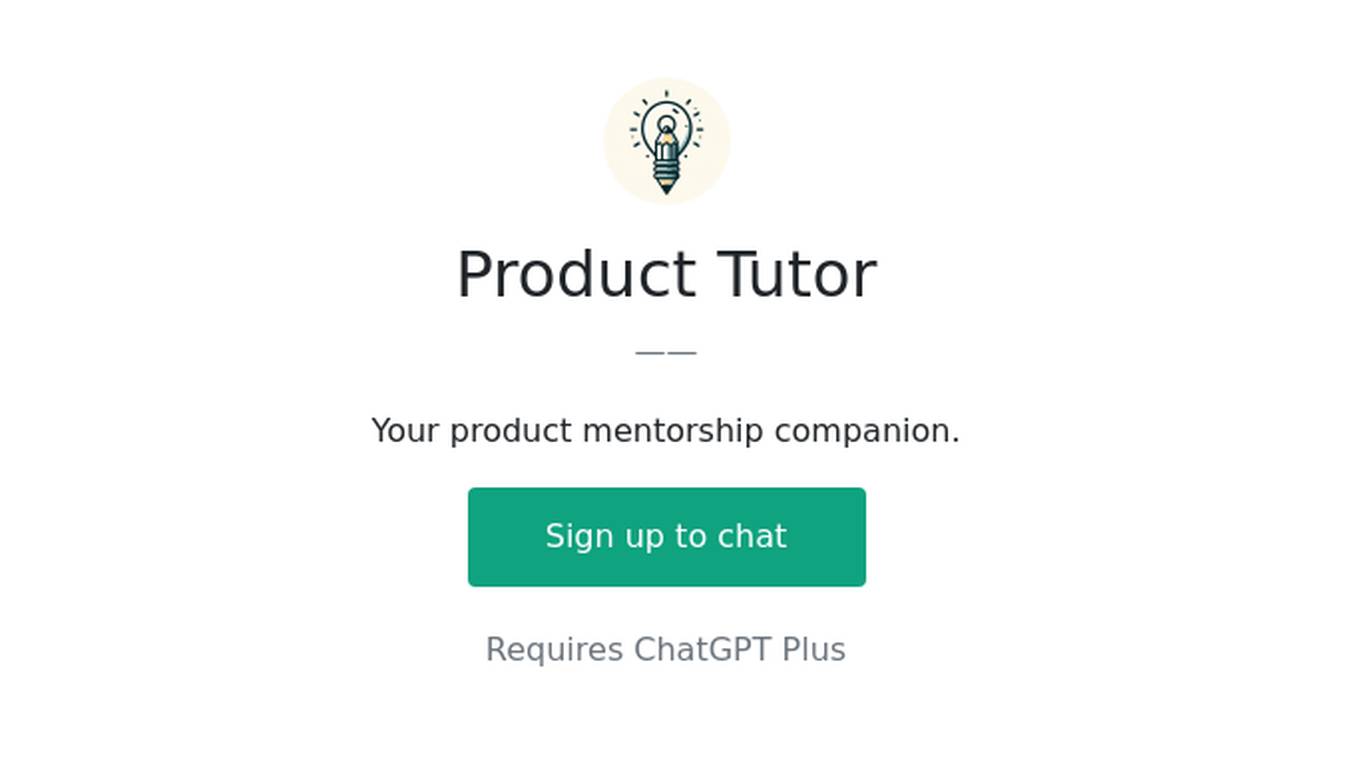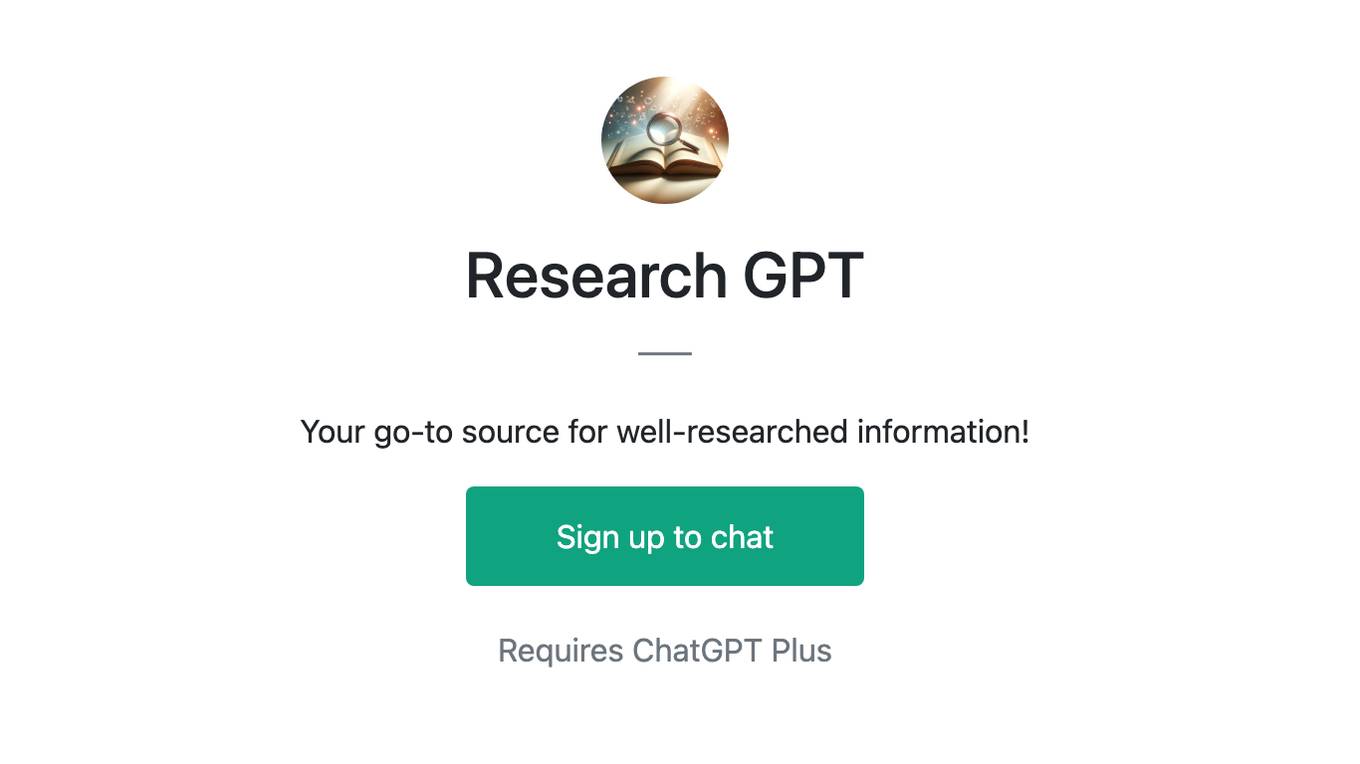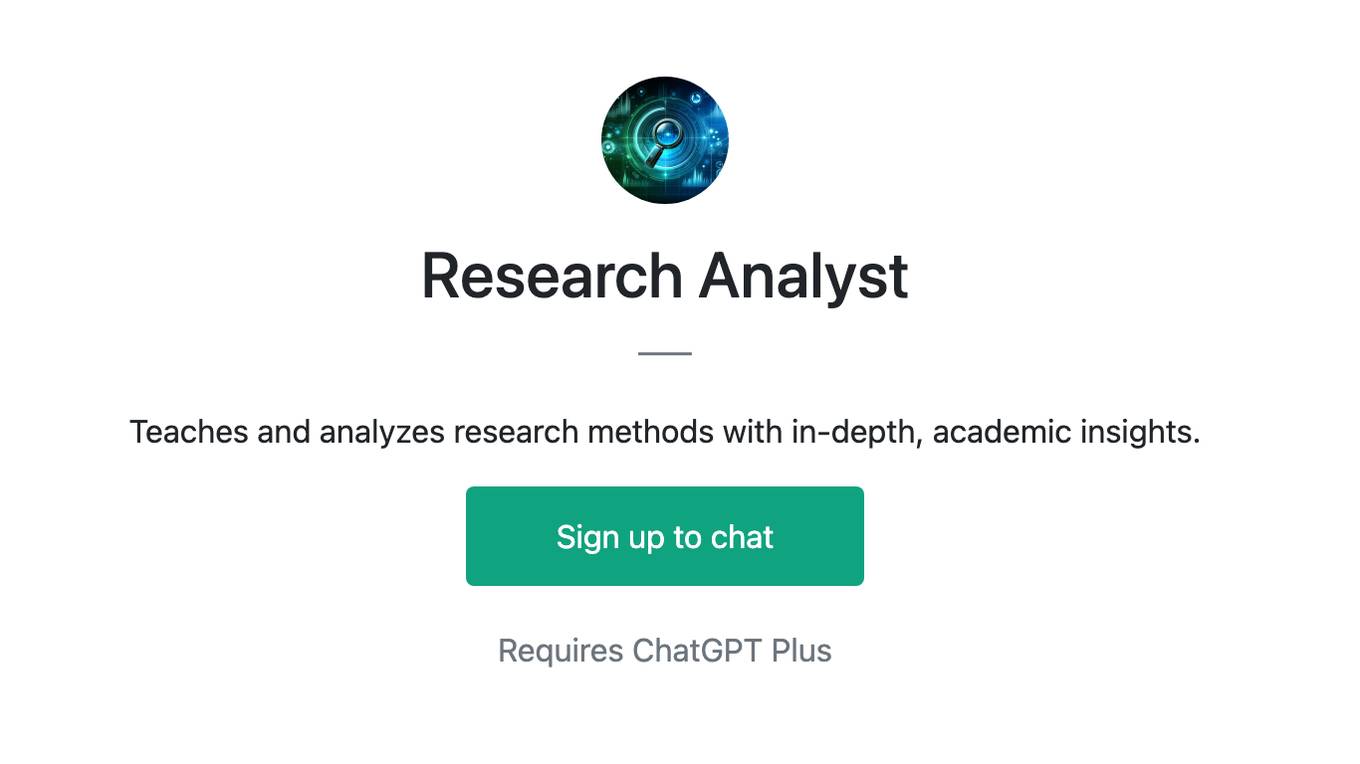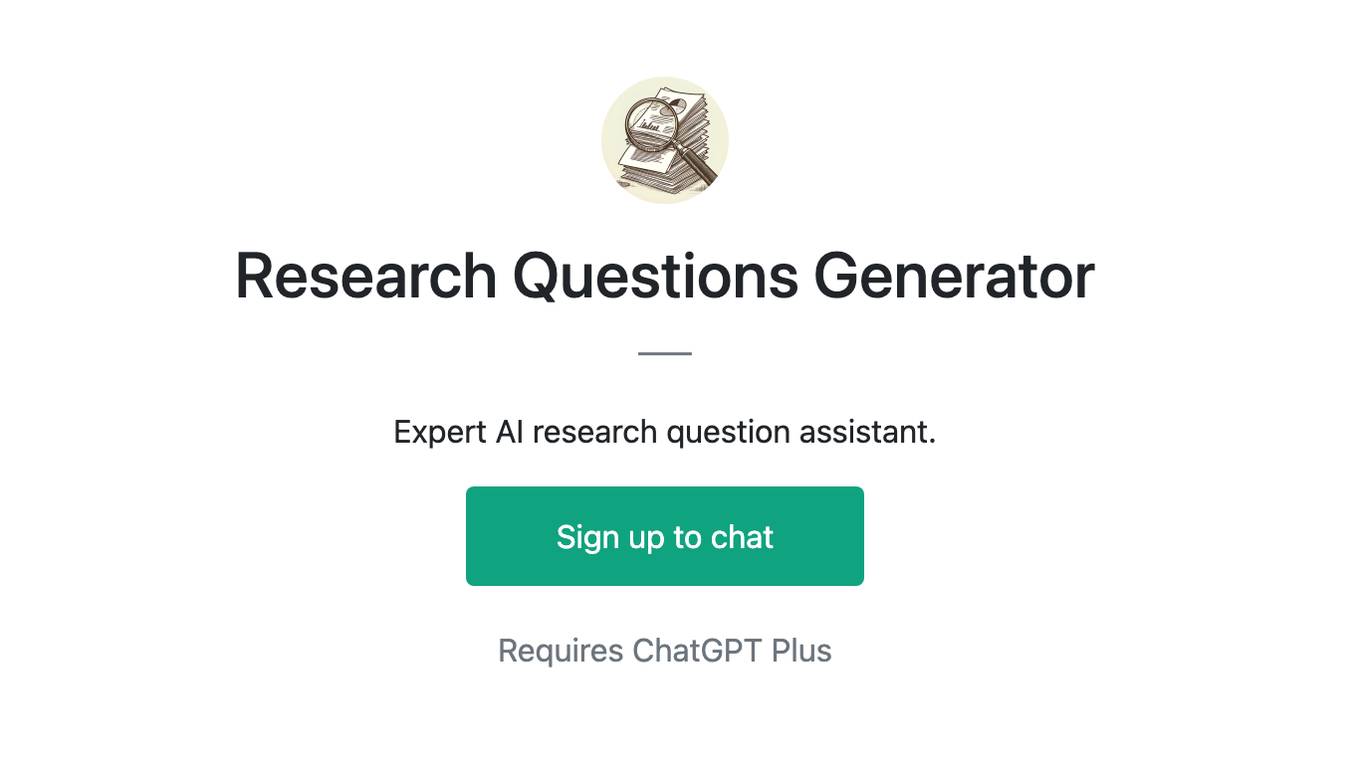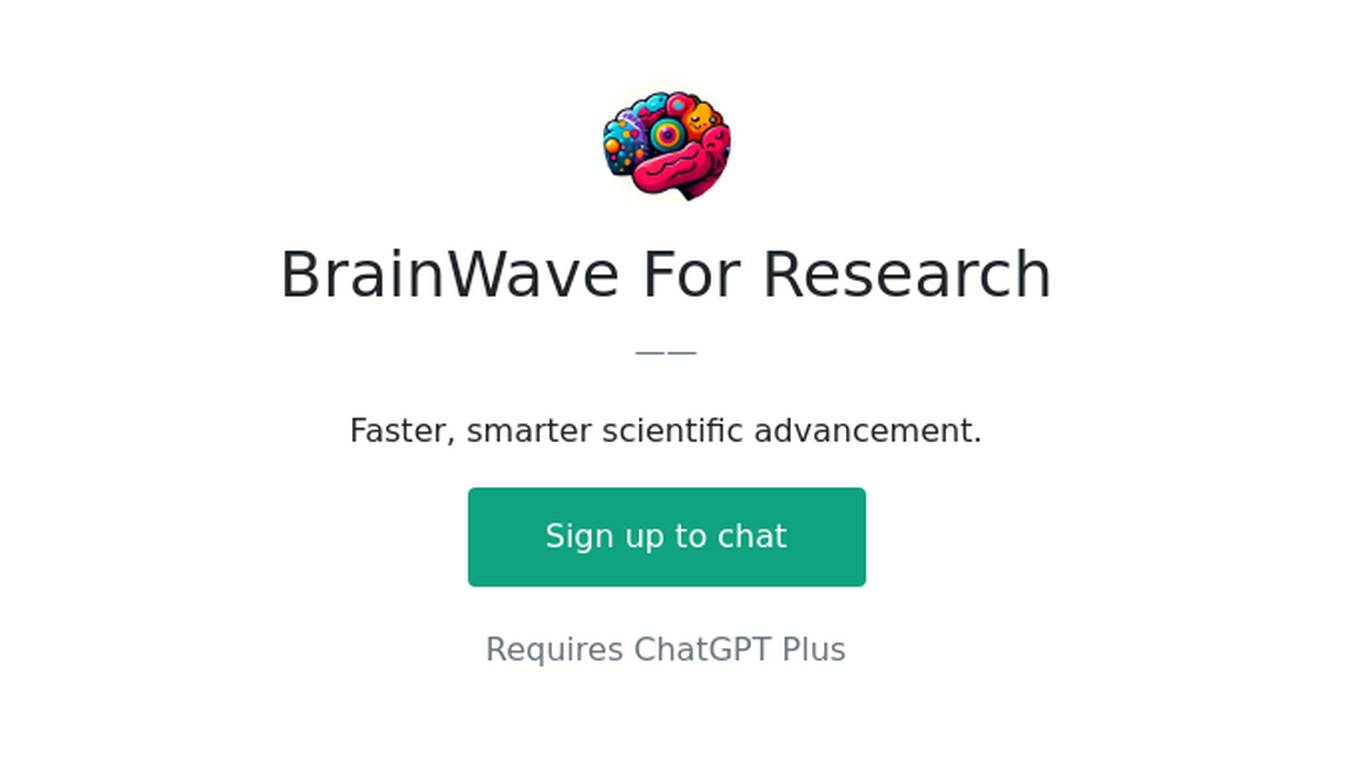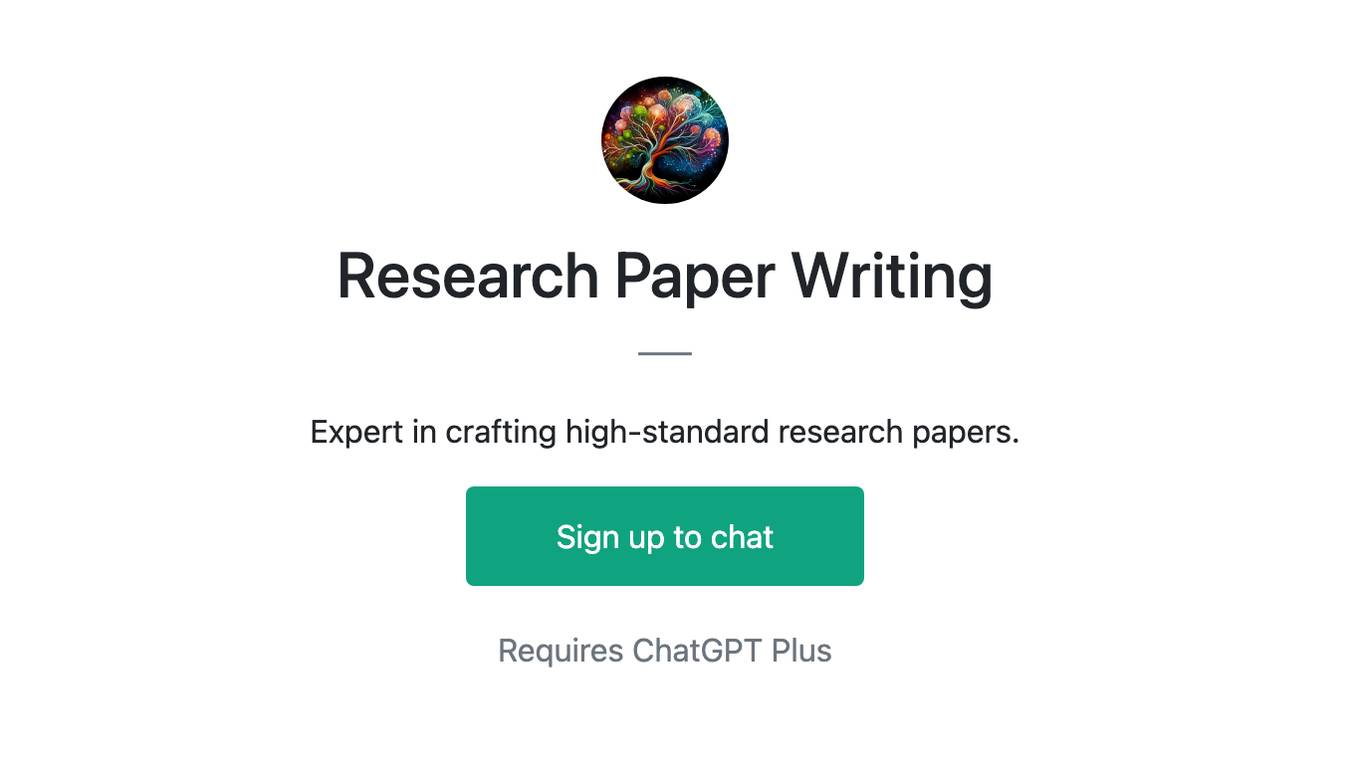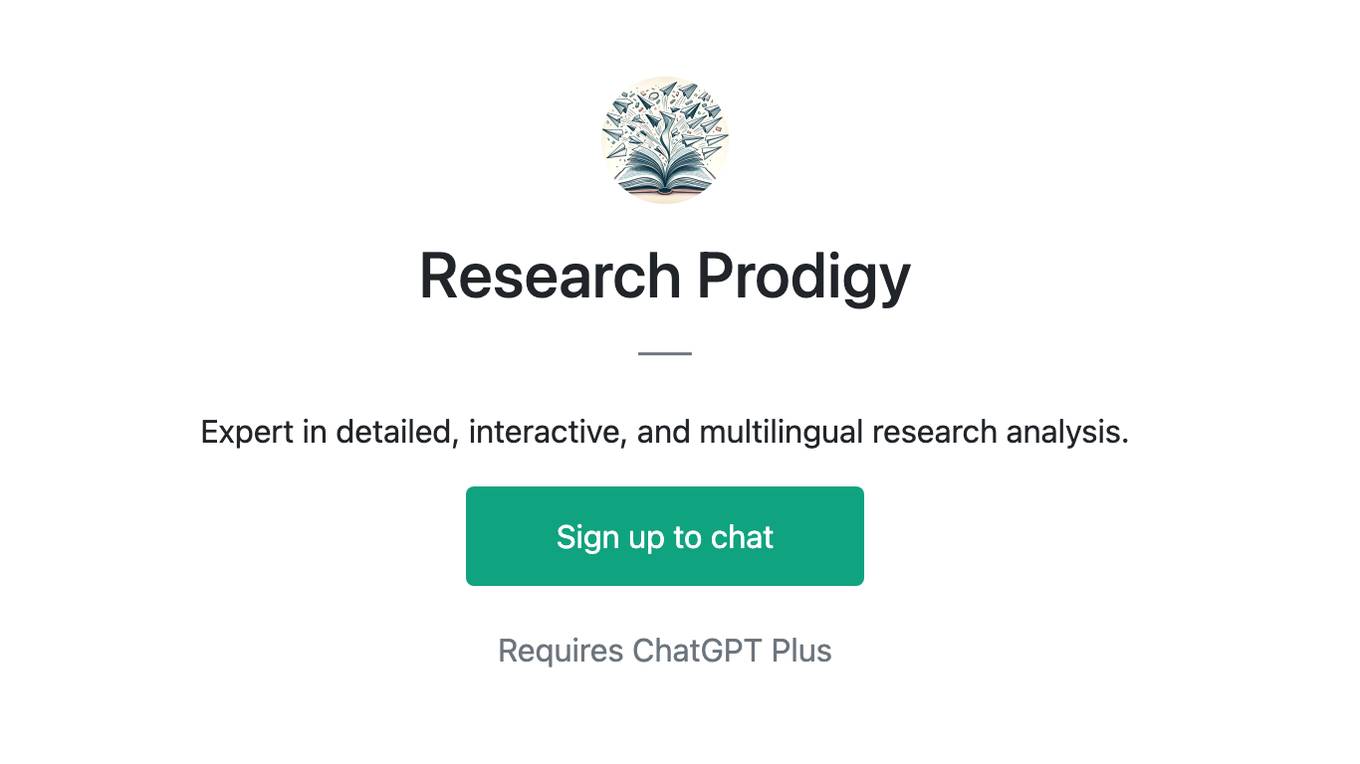Best AI tools for< Research Entrepreneurship >
20 - AI tool Sites

Forbes Luxembourg
Forbes Luxembourg is an AI-powered website focusing on economy, business, and finance. It provides news and articles on various topics such as innovation, leadership, finance, digital assets, luxury, entrepreneurs, and more. The platform covers a wide range of subjects related to the Luxembourg market and global trends in the business world.

YourStory
YourStory is a leading Indian media and technology company that provides in-depth coverage of startups, entrepreneurship, and innovation in India and around the world. The website offers a wide range of content, including news, analysis, interviews, and videos, as well as a number of resources for entrepreneurs, such as a startup directory, a funding database, and a mentorship program.

Vizologi
Vizologi is an AI-powered innovation management software that helps businesses generate limitless business ideas, gain insights on markets and competitors, and automate business plan creation. It offers a stunning business model canvas database with thousands of examples, and allows users to create and edit unique business plans using the mash-up method. Vizologi has helped thousands of people complete over 1.5 million questions in 25+ thousand projects.

FutureFounderAI
FutureFounderAI is an easy-to-use tool that helps entrepreneurs validate and improve their business ideas. With its AI-driven insights and personalized guidance, users can assess the strength of their concepts, gain market insights, and receive practical tips to enhance their plans. The platform provides a user-friendly interface, making it accessible to individuals of all business backgrounds. FutureFounderAI empowers aspiring entrepreneurs to make informed decisions, increase their chances of success, and turn their business dreams into reality.
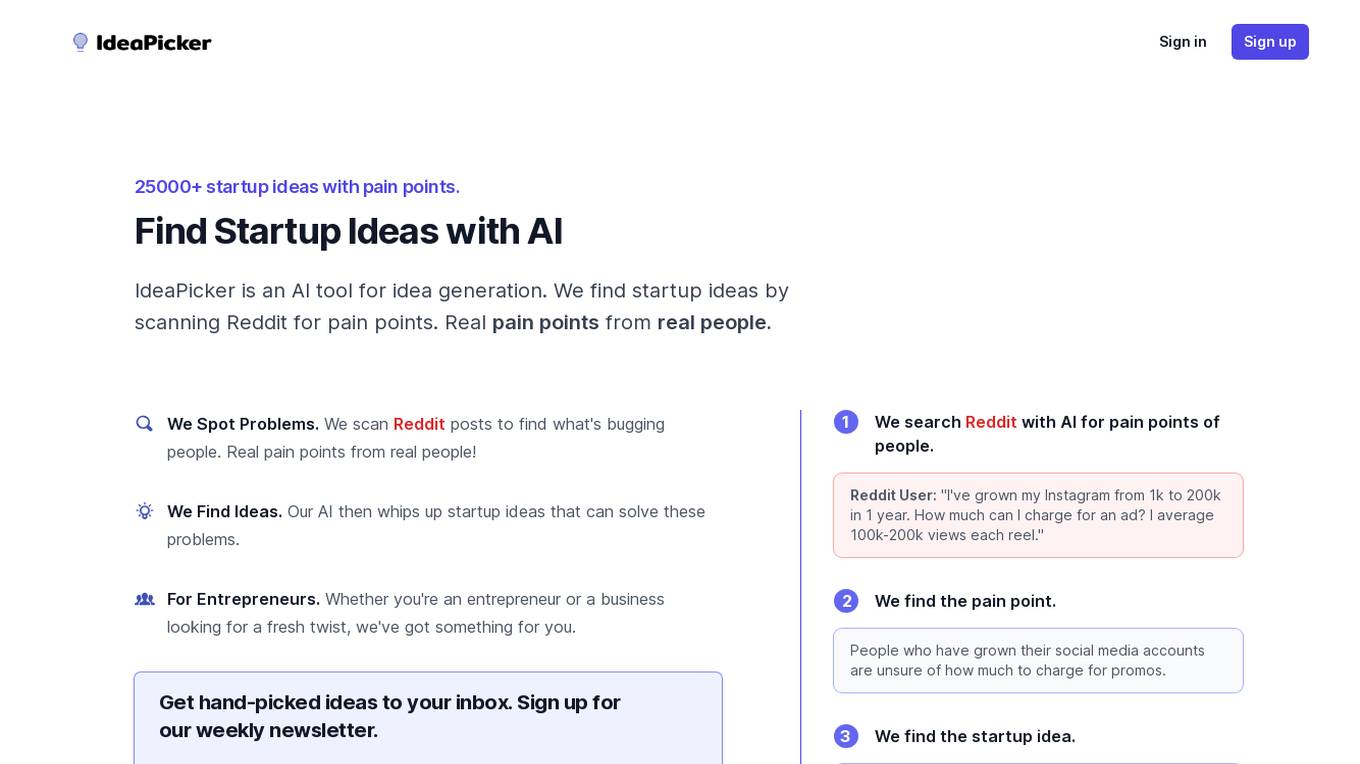
IdeaPicker
IdeaPicker is an AI-powered tool that helps entrepreneurs and businesses generate startup ideas by analyzing pain points expressed on Reddit. It identifies real problems faced by real people and suggests potential solutions in the form of startup ideas. IdeaPicker also provides business plans for these ideas, including product descriptions, market analysis, value propositions, marketing strategies, and monetization plans.

Seabiscuit
Seabiscuit is an AI-powered platform that provides entrepreneurs with the tools and resources they need to start and grow their businesses. With Seabiscuit, you can access a suite of AI-powered tools that can help you with everything from market research to customer relationship management. Seabiscuit also offers a community of experts and mentors who can provide you with support and guidance as you build your business.
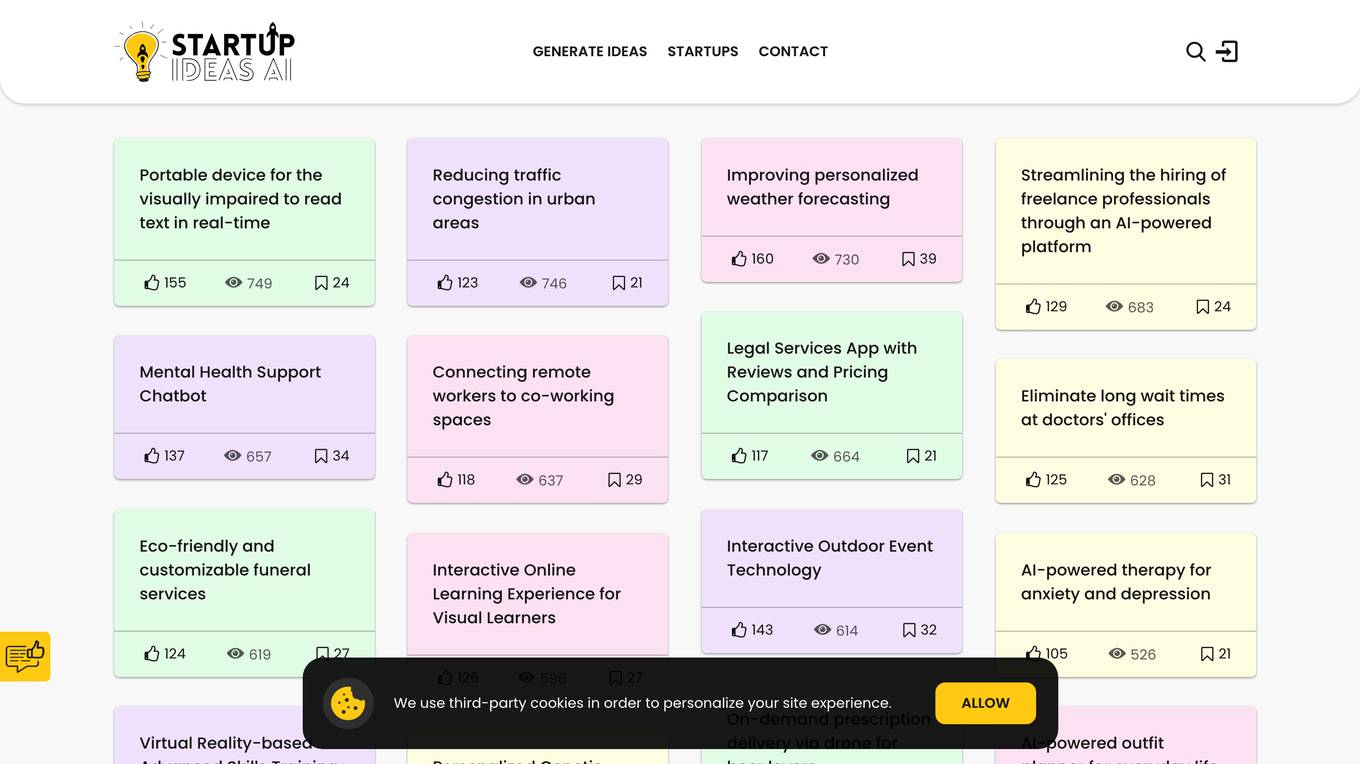
Startup Ideas AI
Startup Ideas AI is a website that provides users with a variety of startup ideas. The website uses artificial intelligence to generate ideas that are tailored to the user's interests and needs. Startup Ideas AI also provides users with information on how to start and grow a business. The website is a valuable resource for entrepreneurs and anyone who is looking for new business ideas.

Business Generator
Business Generator is a tool that helps entrepreneurs and business owners generate ideas for new businesses. It provides a step-by-step process to help users define their target market, revenue model, technology stack, industry, investment level, competition, experience level, environmental impact, regulatory requirements, and response language. The tool then generates a list of potential business ideas based on the user's input.

Google Research
Google Research is a leading research organization focusing on advancing science and artificial intelligence. They conduct research in various domains such as AI/ML foundations, responsible human-centric technology, science & societal impact, computing paradigms, and algorithms & optimization. Google Research aims to create an environment for diverse research across different time scales and levels of risk, driving advancements in computer science through fundamental and applied research. They publish hundreds of research papers annually, collaborate with the academic community, and work on projects that impact technology used by billions of people worldwide.

Google Research
Google Research is a team of scientists and engineers working on a wide range of topics in computer science, including artificial intelligence, machine learning, and quantum computing. Our mission is to advance the state of the art in these fields and to develop new technologies that can benefit society. We publish hundreds of research papers each year and collaborate with researchers from around the world. Our work has led to the development of many new products and services, including Google Search, Google Translate, and Google Maps.
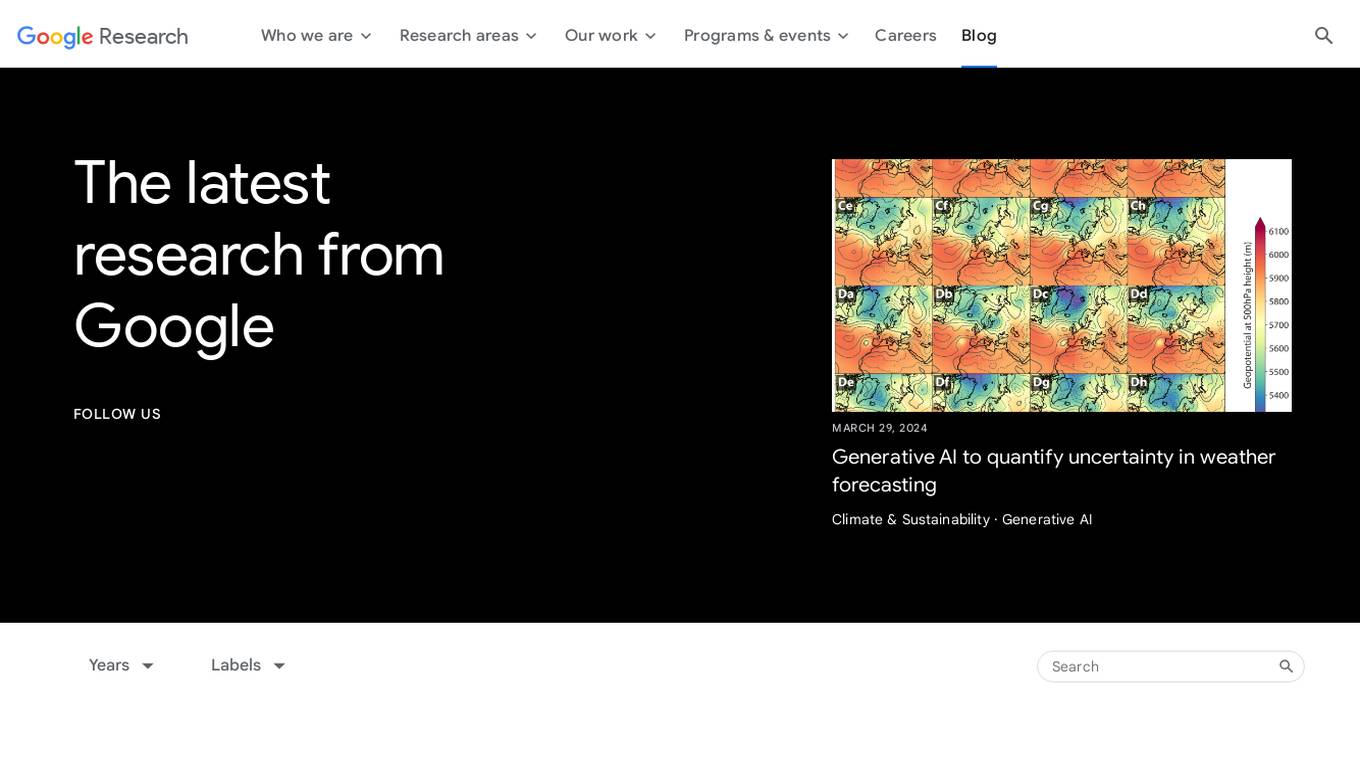
Google Research Blog
The Google Research Blog is a platform for researchers at Google to share their latest work in artificial intelligence, machine learning, and other related fields. The blog covers a wide range of topics, from theoretical research to practical applications. The goal of the blog is to provide a forum for researchers to share their ideas and findings, and to foster collaboration between researchers at Google and around the world.
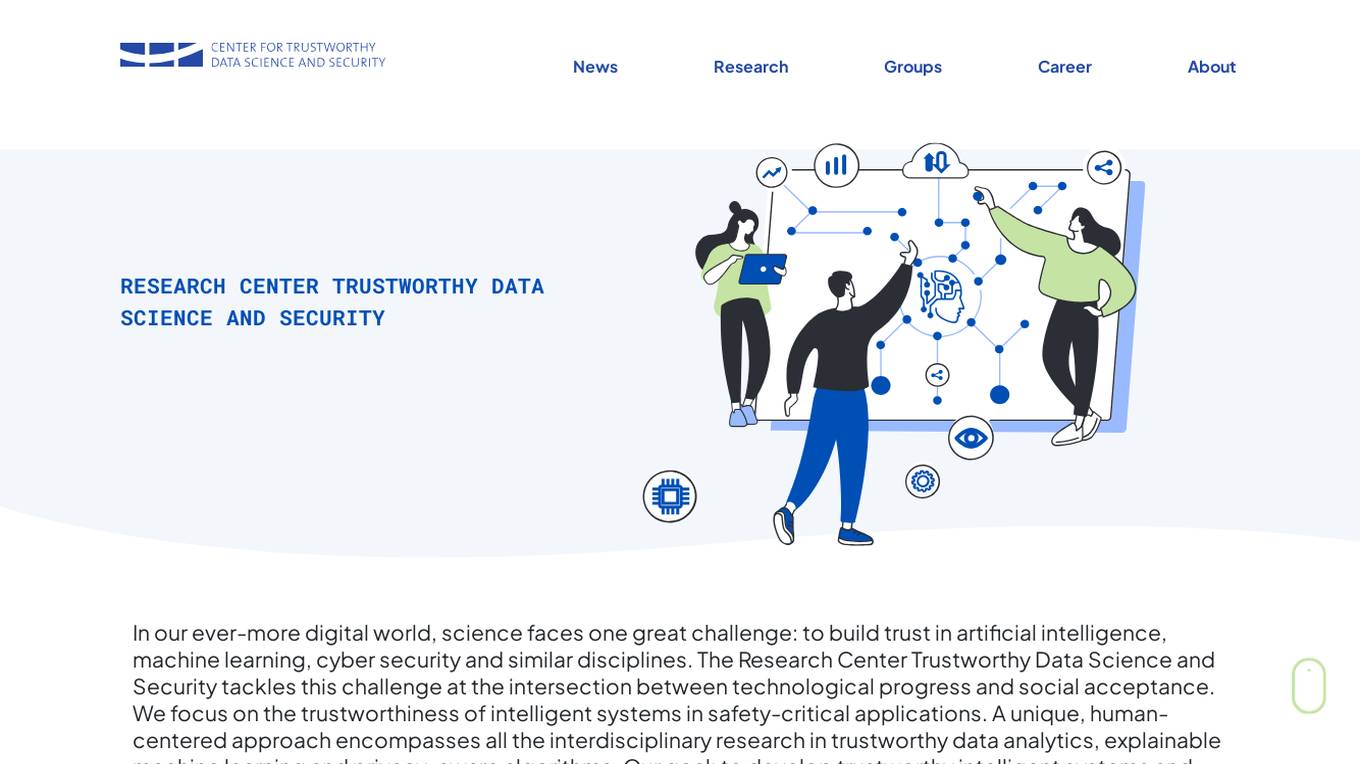
Research Center Trustworthy Data Science and Security
The Research Center Trustworthy Data Science and Security is a hub for interdisciplinary research focusing on building trust in artificial intelligence, machine learning, and cyber security. The center aims to develop trustworthy intelligent systems through research in trustworthy data analytics, explainable machine learning, and privacy-aware algorithms. By addressing the intersection of technological progress and social acceptance, the center seeks to enable private citizens to understand and trust technology in safety-critical applications.

Research Studio
Research Studio is a next-level UX research tool that helps you streamline your user research with AI-enhanced analysis. Whether you're a freelance UX designer, user researcher, or agency, Research Studio can help you get the insights you need to make better decisions about your products and services.
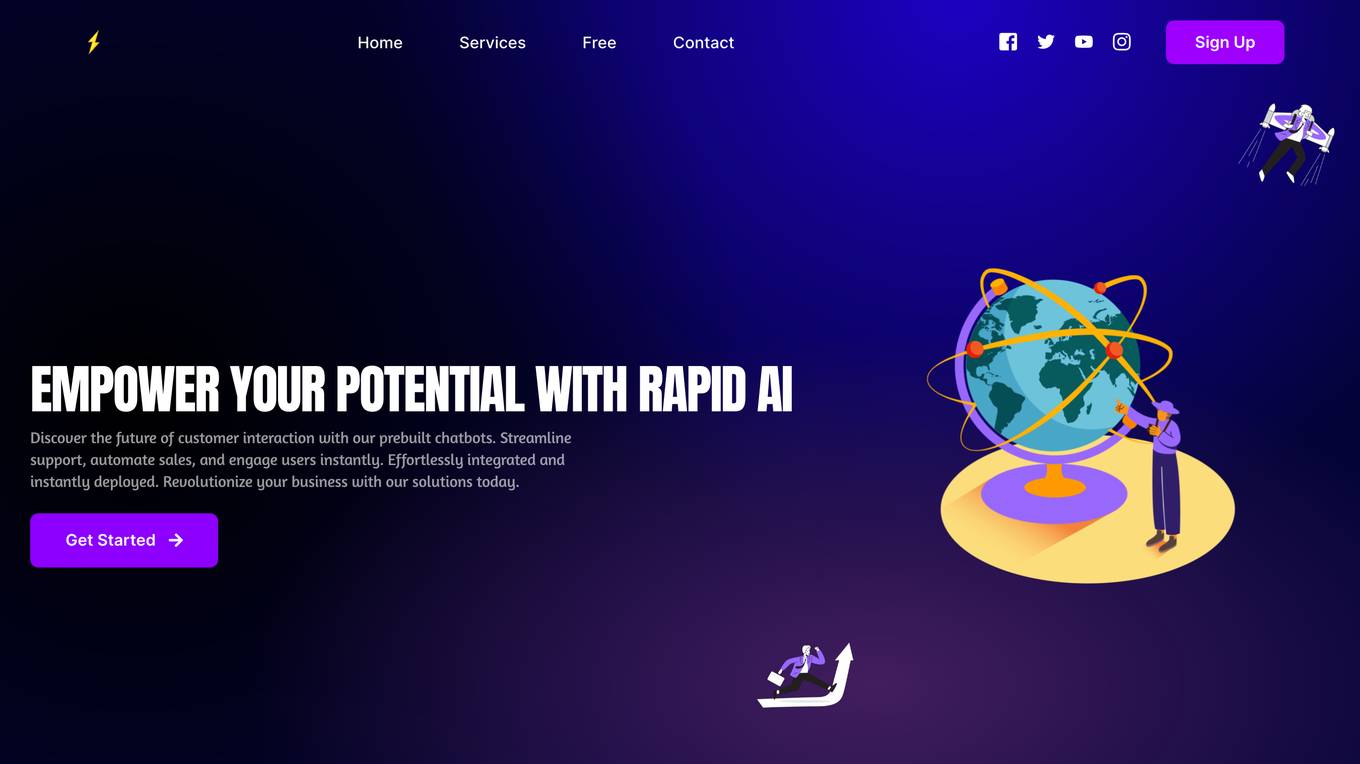
RapidAI Research Institute
RapidAI Research Institute is an academic institution under the RapidAI open-source organization, a non-enterprise academic institution. It serves as a platform for academic research and collaboration, providing opportunities for aspiring researchers to publish papers and engage in scholarly activities. The institute offers mentorship programs and benefits for members, including access to resources such as internet connectivity, GPU configurations, and storage space. The management team consists of esteemed professionals in the field, ensuring a conducive environment for academic growth and development.
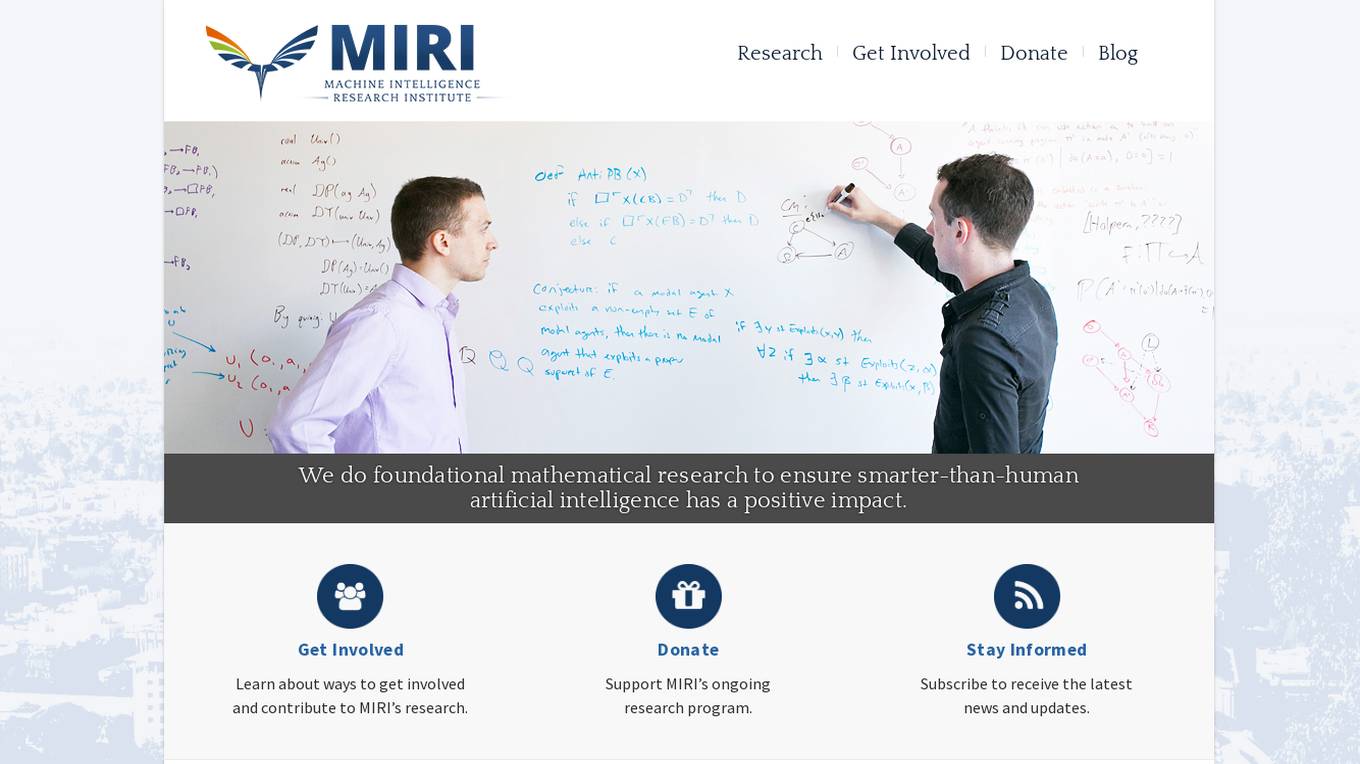
MIRI (Machine Intelligence Research Institute)
MIRI (Machine Intelligence Research Institute) is a non-profit research organization dedicated to ensuring that artificial intelligence has a positive impact on humanity. MIRI conducts foundational mathematical research on topics such as decision theory, game theory, and reinforcement learning, with the goal of developing new insights into how to build safe and beneficial AI systems.
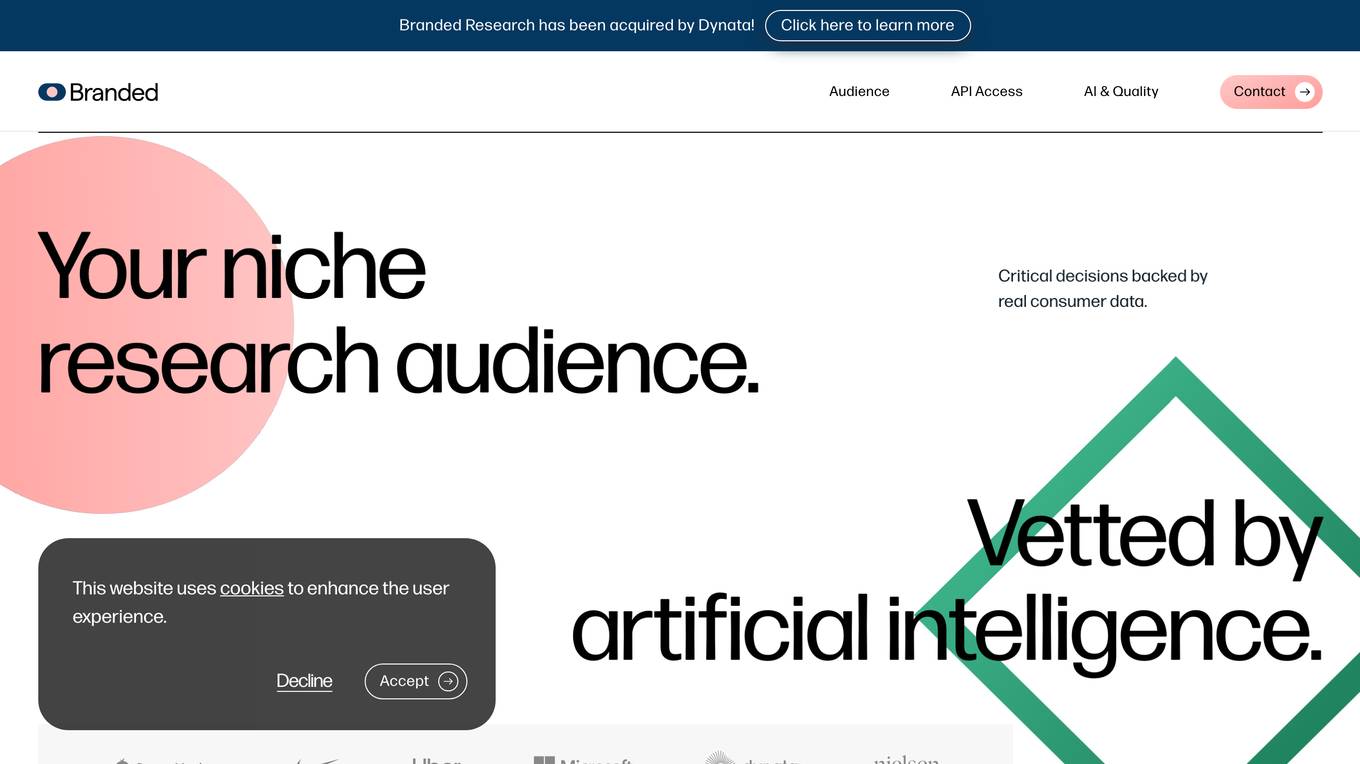
Branded Research
Branded Research, acquired by Dynata, provides access to AI-verified audience insights. It offers a range of research methods, including surveys, webcam studies, and emotional AI. With its advanced algorithms and extensive profiling, Branded helps businesses connect with their target audience and gain valuable insights to drive innovation. The company serves various industries, including tech, consumer goods, healthcare, and research agencies.
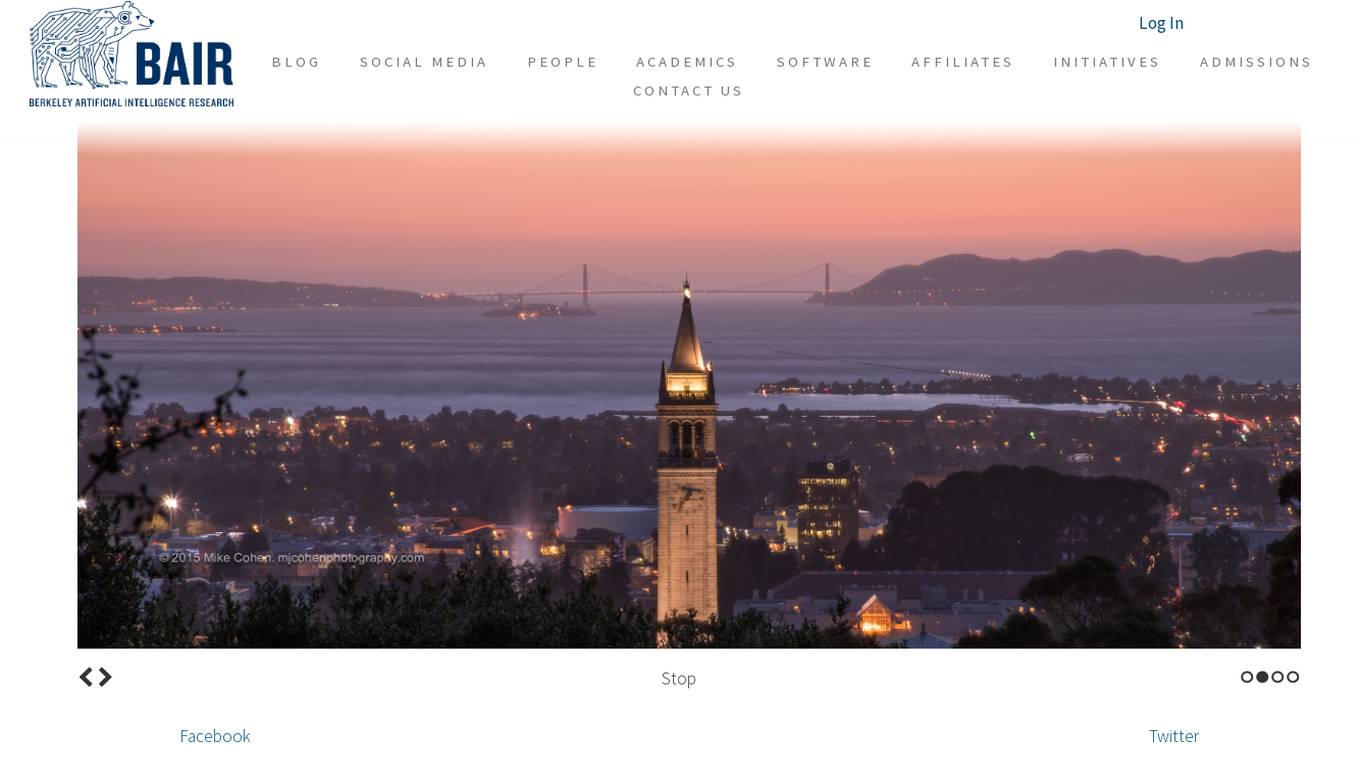
Berkeley Artificial Intelligence Research (BAIR) Lab
The Berkeley Artificial Intelligence Research (BAIR) Lab is a renowned research lab at UC Berkeley focusing on computer vision, machine learning, natural language processing, planning, control, and robotics. With over 50 faculty members and 300 graduate students, BAIR conducts research on fundamental advances in AI and interdisciplinary themes like multi-modal deep learning and human-compatible AI.

AIM Research
AIM Research is a leading platform providing insights and analysis on the Artificial Intelligence industry. The website offers a comprehensive range of resources, including research reports, event coverage, news articles, and expert opinions. AIM Research focuses on highlighting the latest trends, innovations, and key players in the AI sector, catering to professionals, researchers, and enthusiasts seeking in-depth knowledge and understanding of AI technologies and applications.
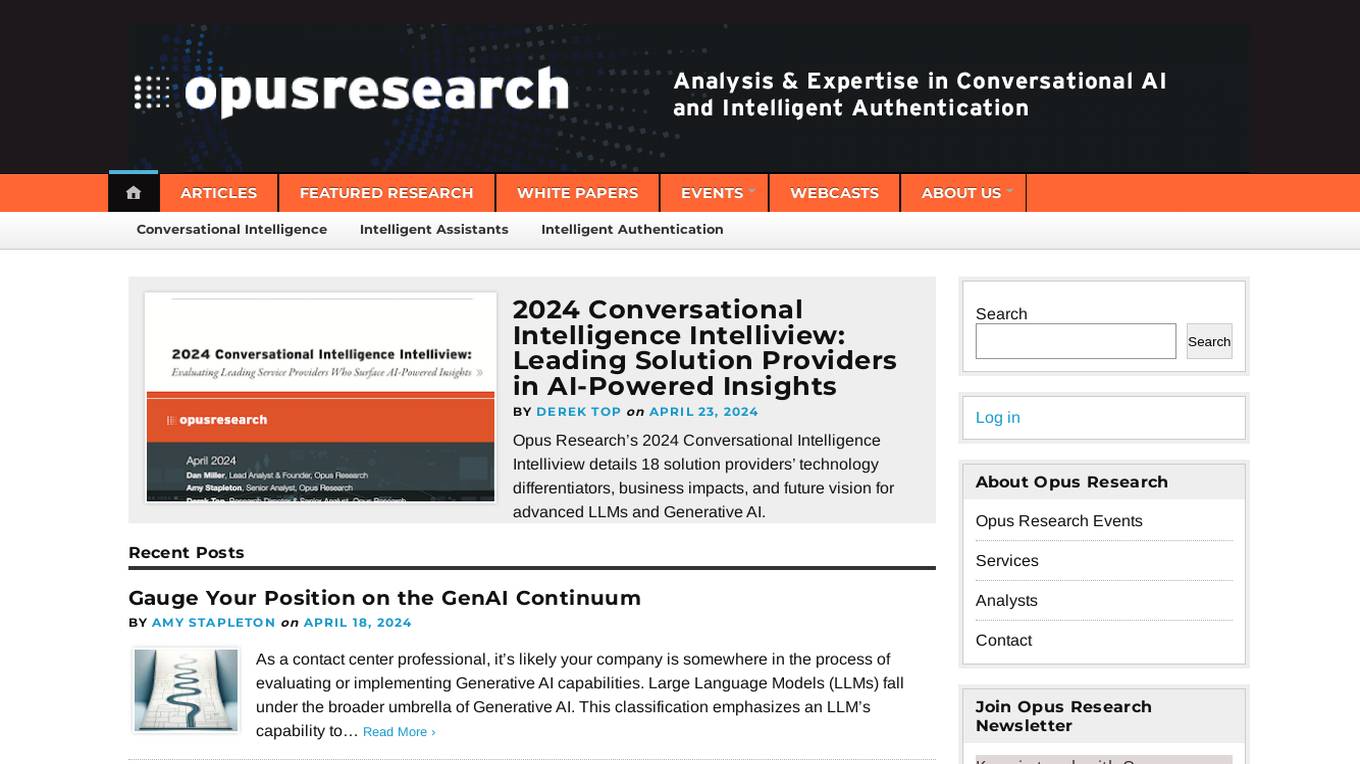
Opus Research
Opus Research is a leading provider of market research, consulting, and advisory services to the global digital communications and collaboration sectors. The company's research focuses on the convergence of emerging technologies, including artificial intelligence (AI), machine learning (ML), and natural language processing (NLP), with the communications and collaboration industries.
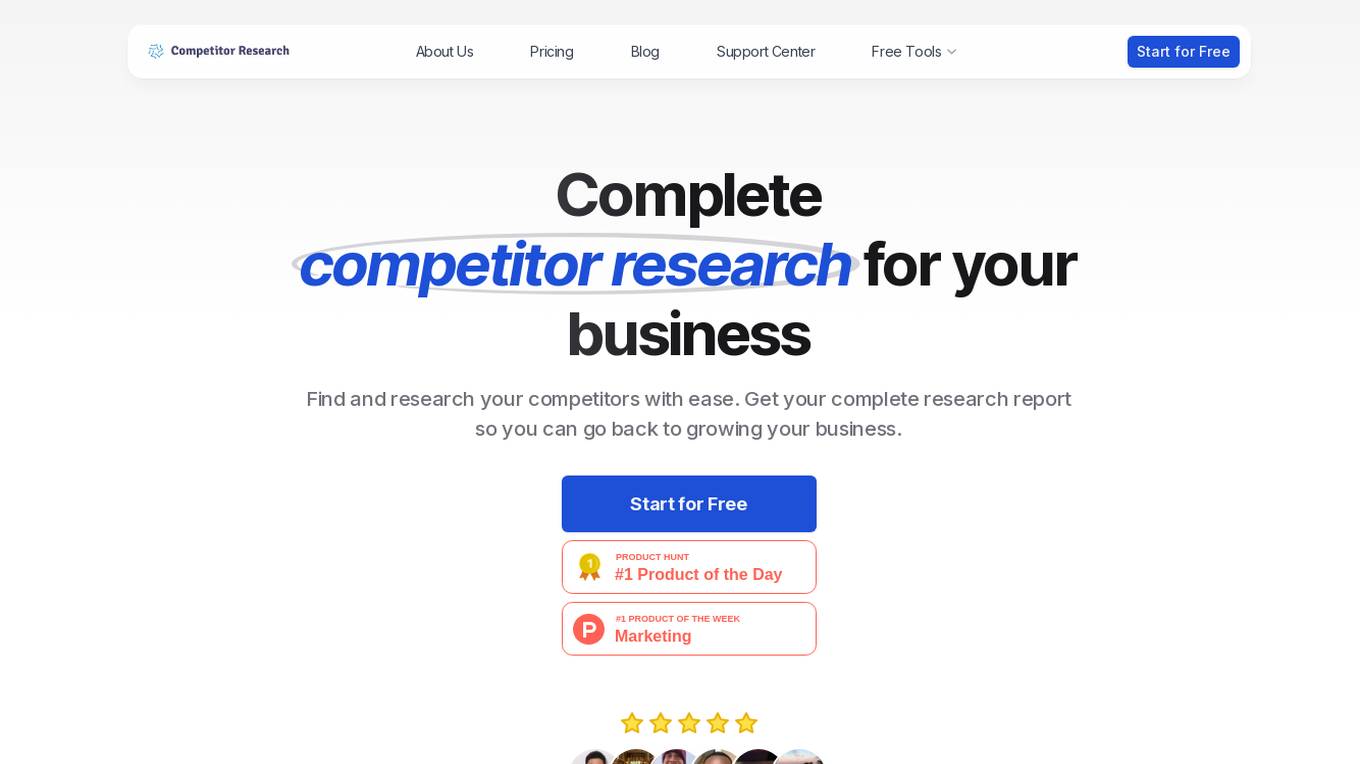
Competitor Research
Competitor Research is an AI-powered tool that helps businesses analyze and understand their competitors. It provides a comprehensive research report on direct, indirect, substitute, and potential competitors, including insights on search traffic, keywords, backlinks, target audience, pricing strategy, website performance, and customer engagement. The tool uses AI to save time and deliver actionable insights to help businesses grow and stay ahead of the competition.
0 - Open Source AI Tools
20 - OpenAI Gpts
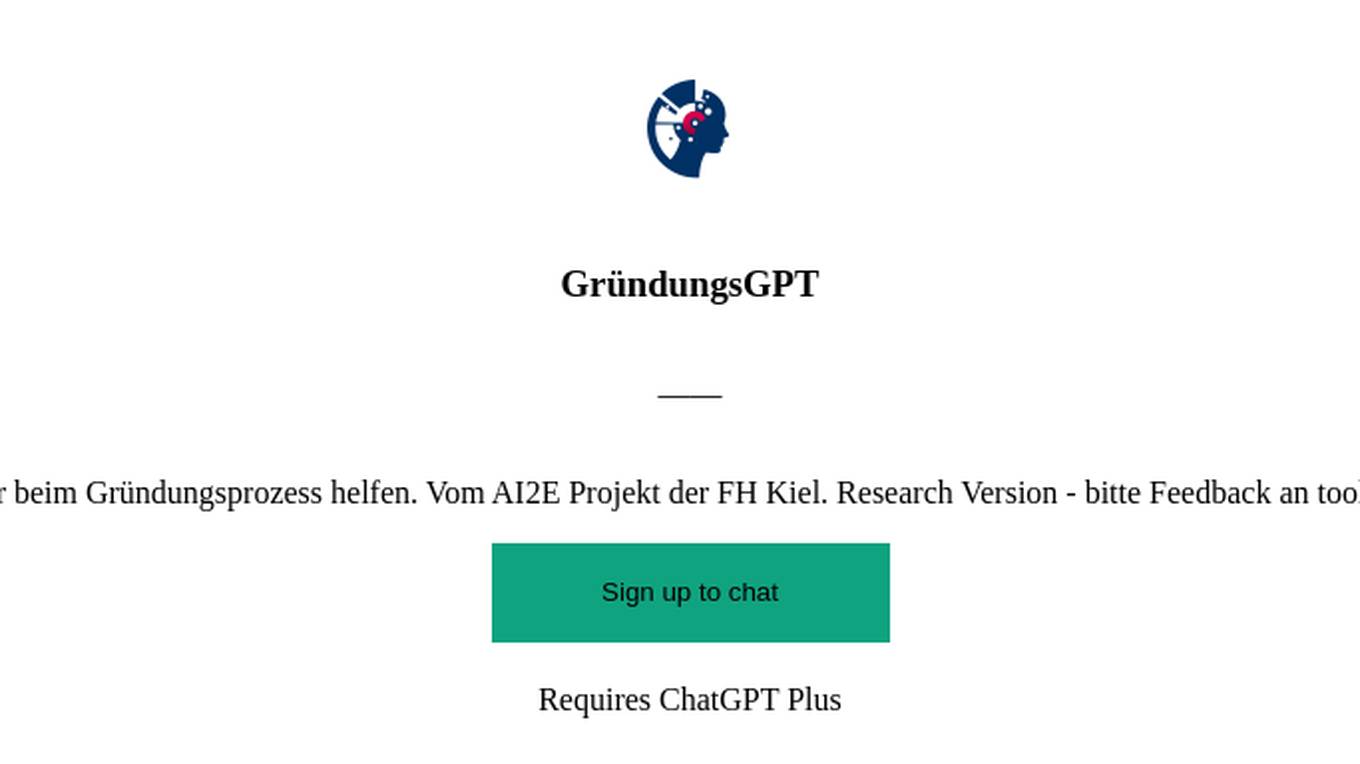
GründungsGPT
Ich will dir beim Gründungsprozess helfen. Vom AI2E Projekt der FH Kiel. Research Version - bitte Feedback an [email protected] .
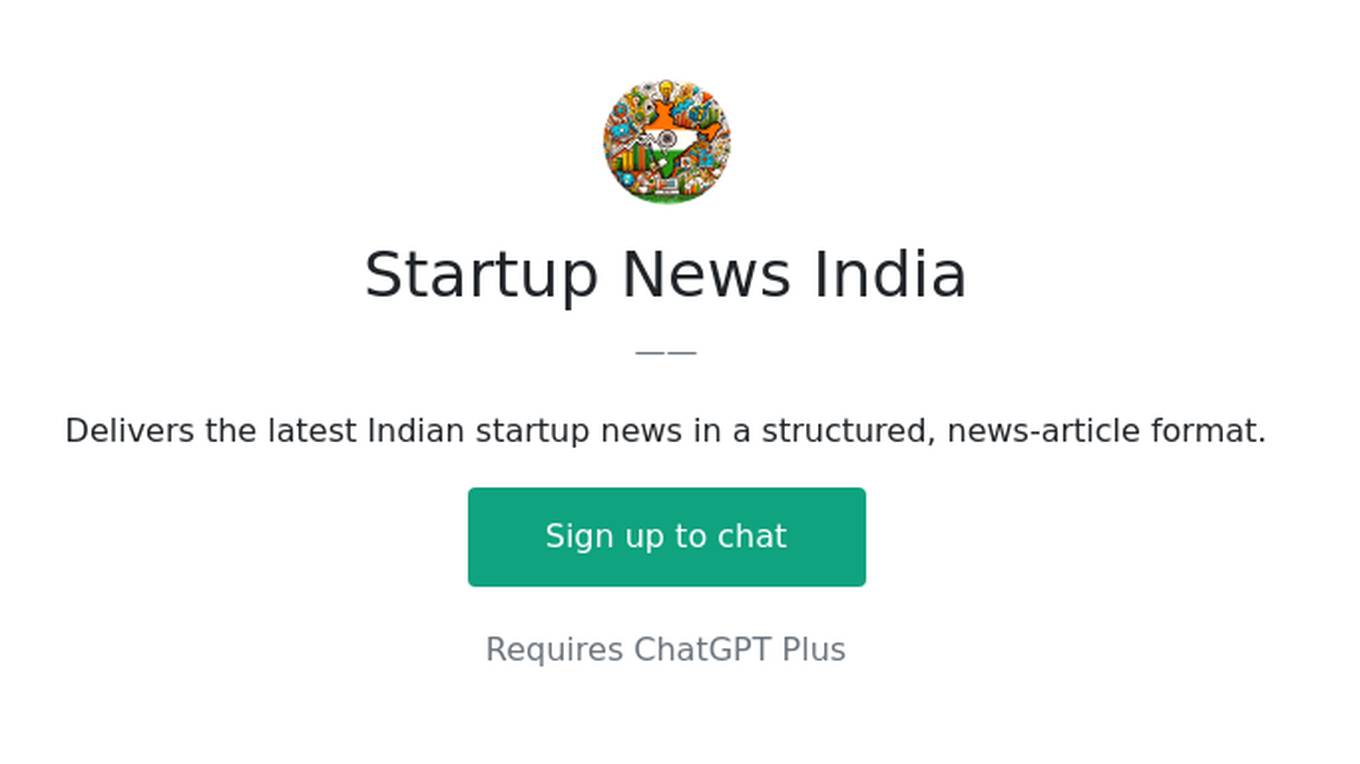
Startup News India
Delivers the latest Indian startup news in a structured, news-article format.
![[청년창업사관학교 사업계획서] 사업계획서 도우미 - ② Screenshot](/screenshots_gpts/g-WEdTxY551.jpg)
[청년창업사관학교 사업계획서] 사업계획서 도우미 - ②
본 GPTs는 인증된 사용자만 사용 가능합니다. 문의) https://open.kakao.com/o/sJHIBJTf 이현상
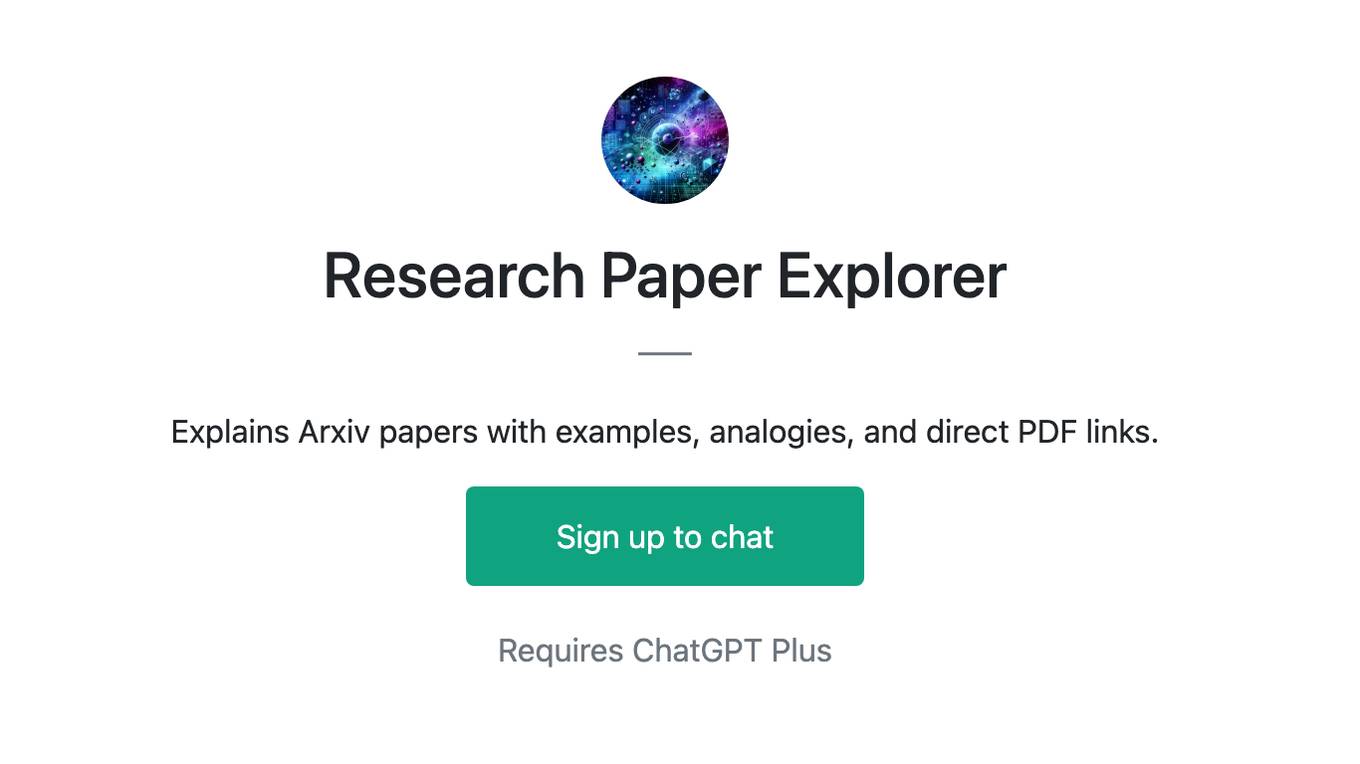
Research Paper Explorer
Explains Arxiv papers with examples, analogies, and direct PDF links.
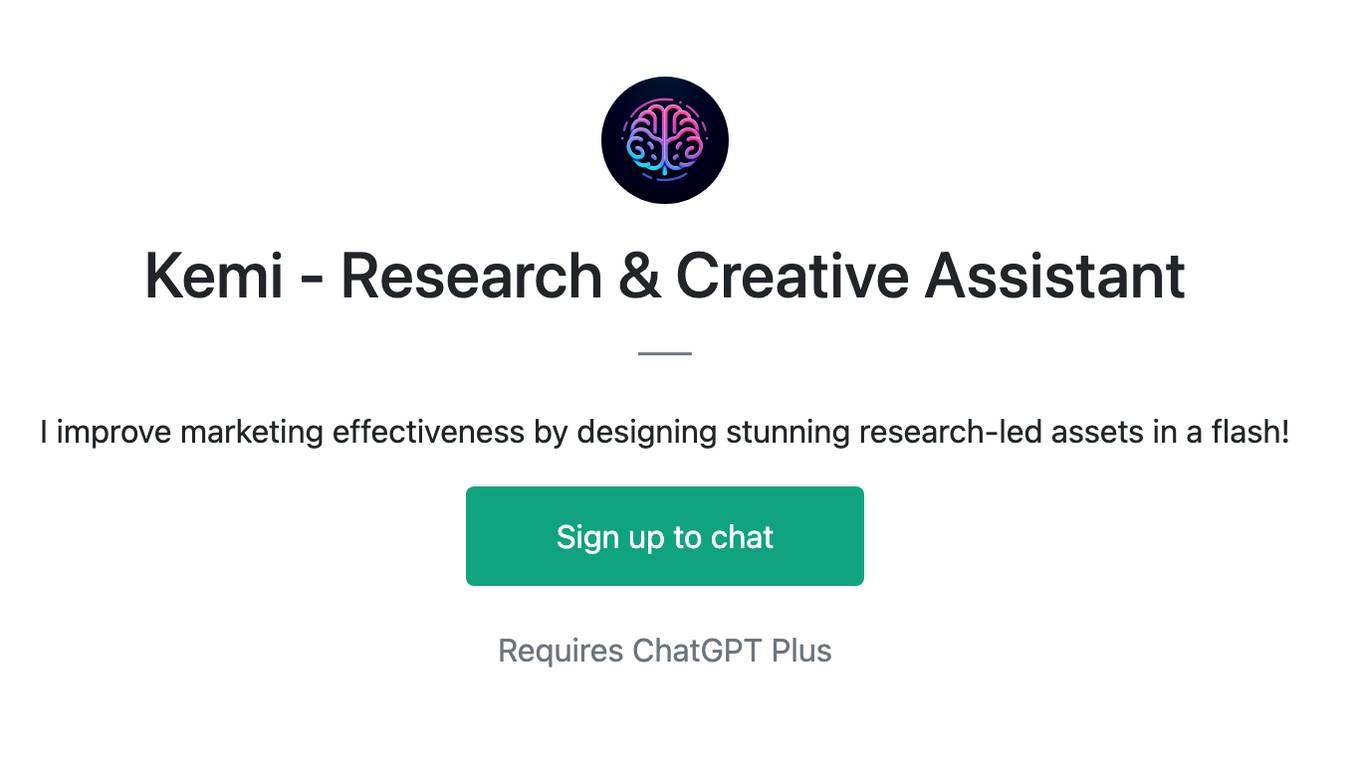
Kemi - Research & Creative Assistant
I improve marketing effectiveness by designing stunning research-led assets in a flash!
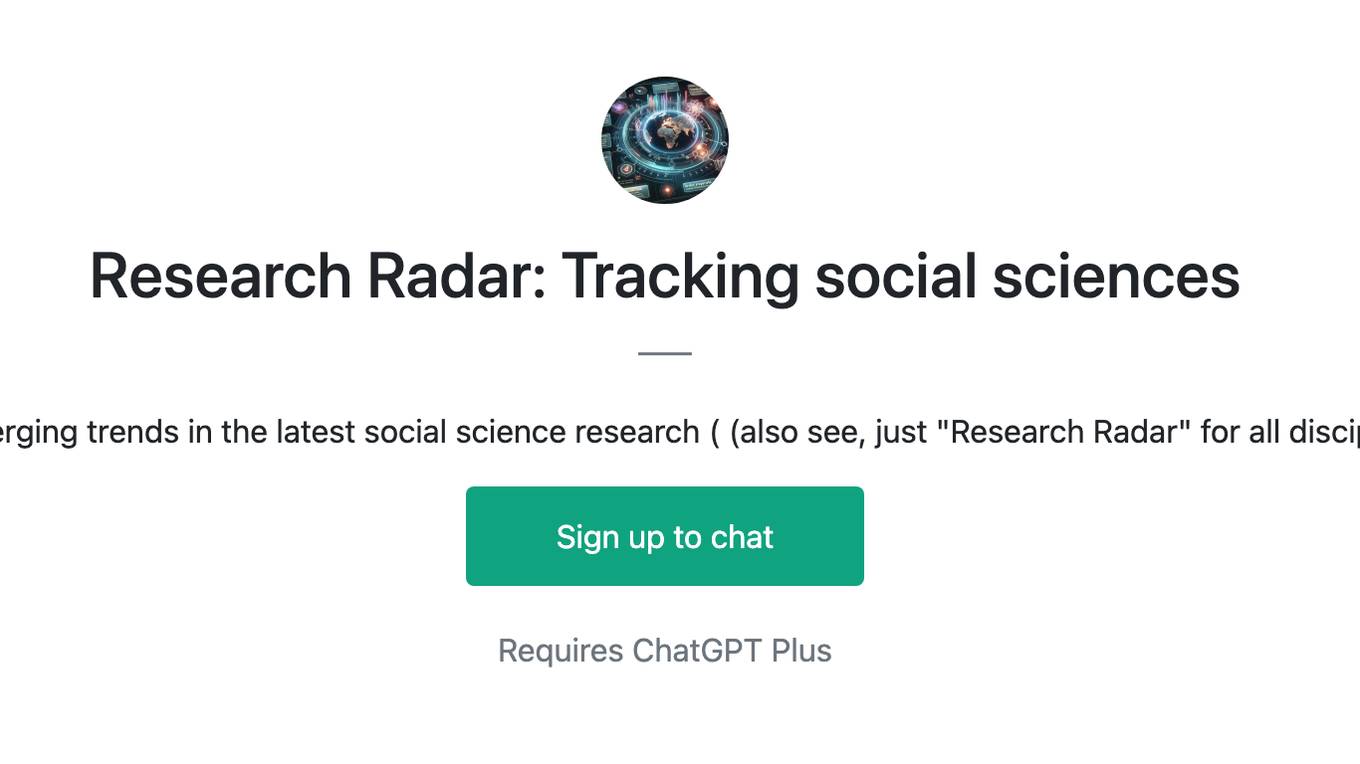
Research Radar: Tracking social sciences
Spot emerging trends in the latest social science research ( (also see, just "Research Radar" for all disciplines))
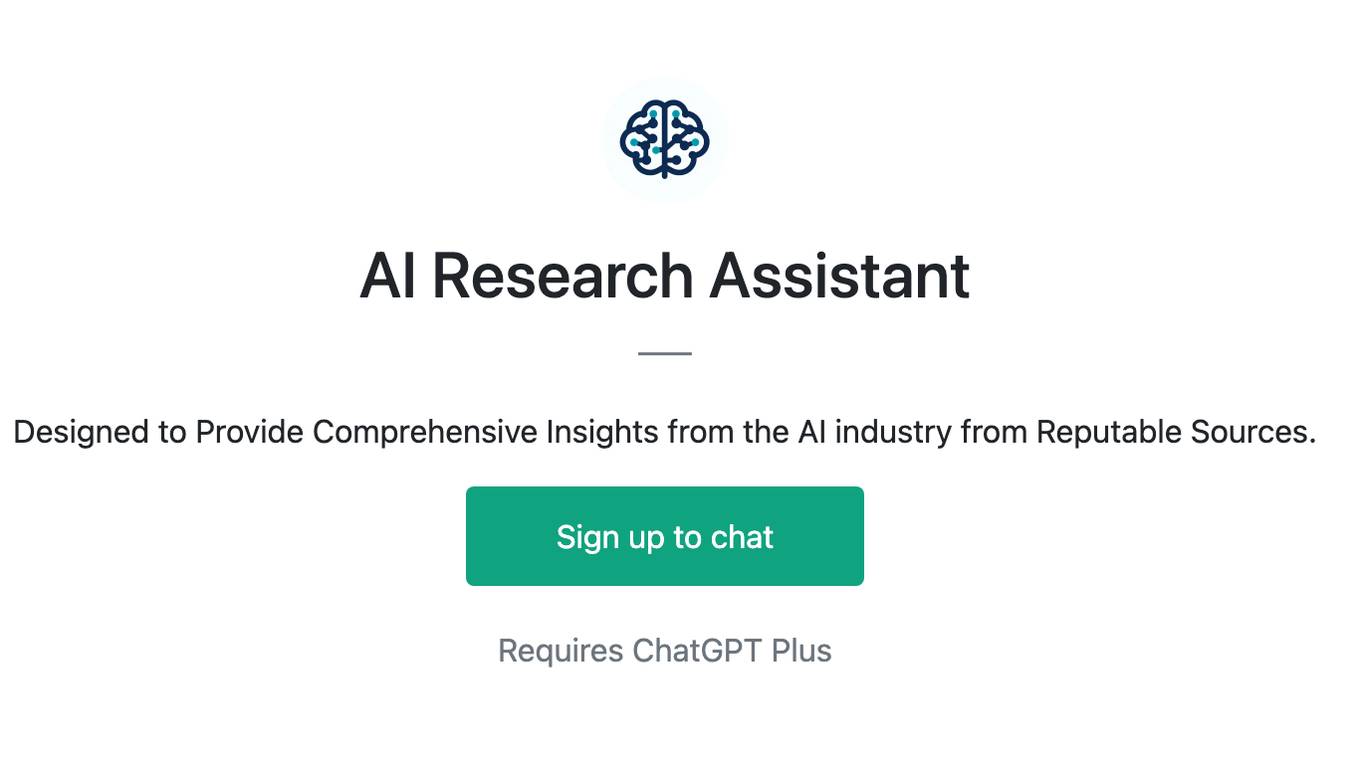
AI Research Assistant
Designed to Provide Comprehensive Insights from the AI industry from Reputable Sources.
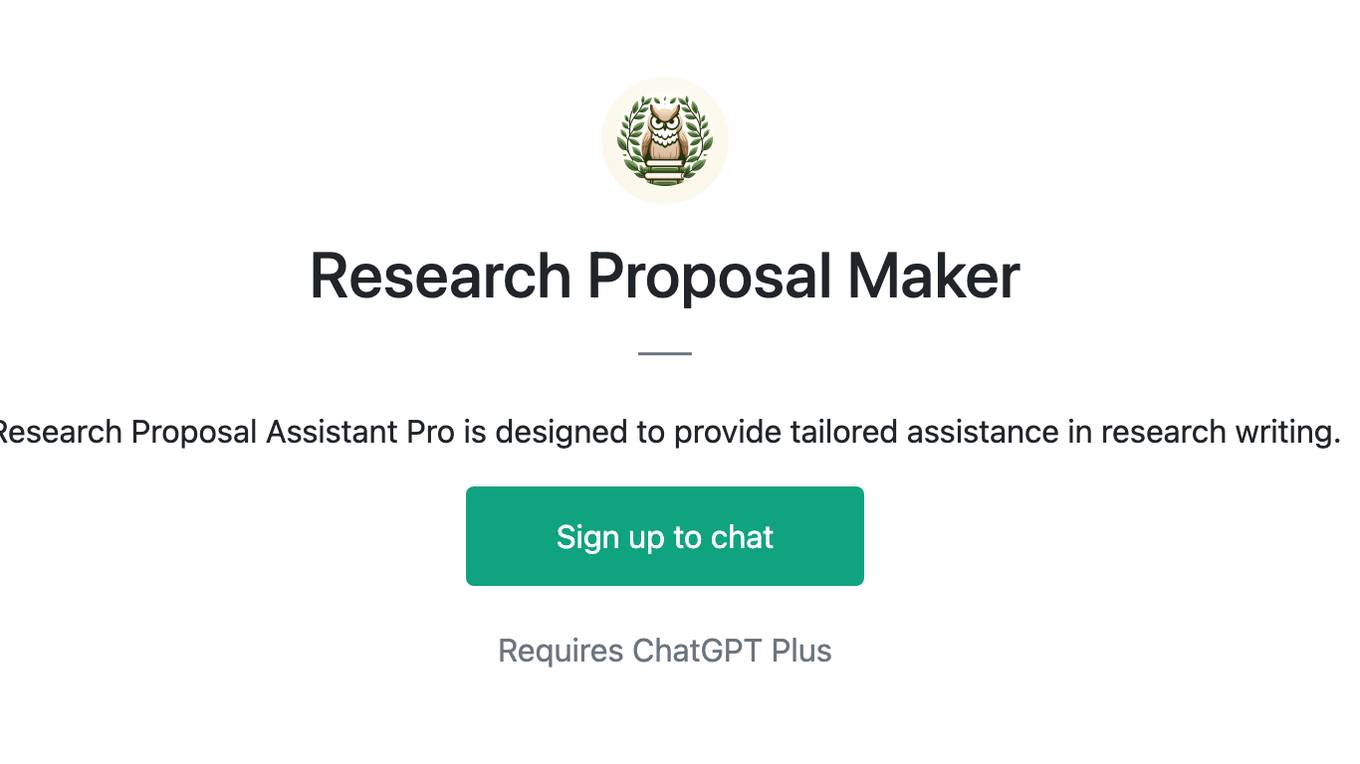
Research Proposal Maker
Research Proposal Assistant Pro is designed to provide tailored assistance in research writing.
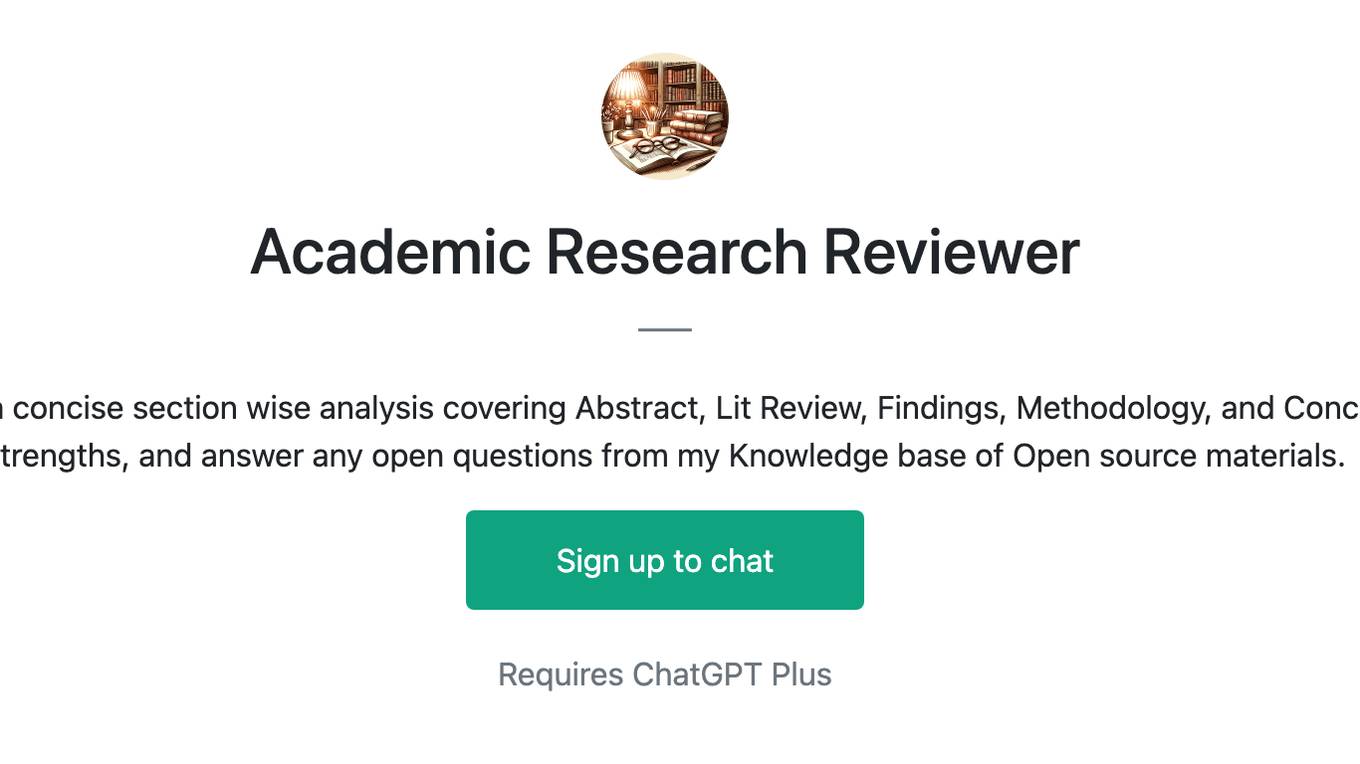
Academic Research Reviewer
Upon uploading a research paper, I provide a concise section wise analysis covering Abstract, Lit Review, Findings, Methodology, and Conclusion. I also critique the work, highlight its strengths, and answer any open questions from my Knowledge base of Open source materials.


